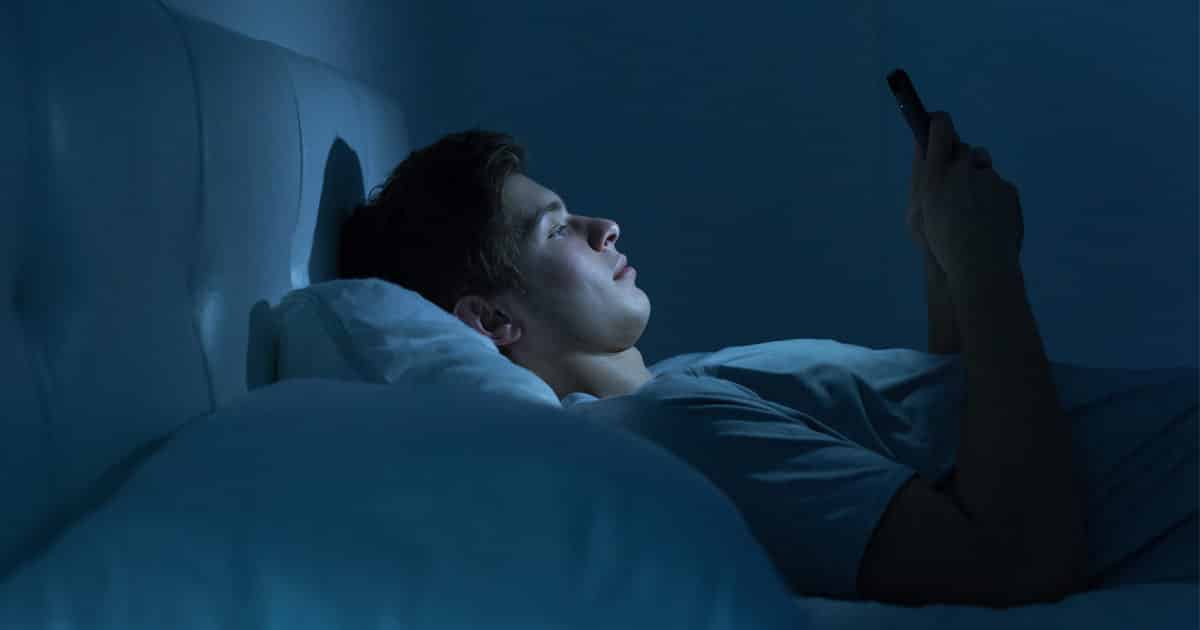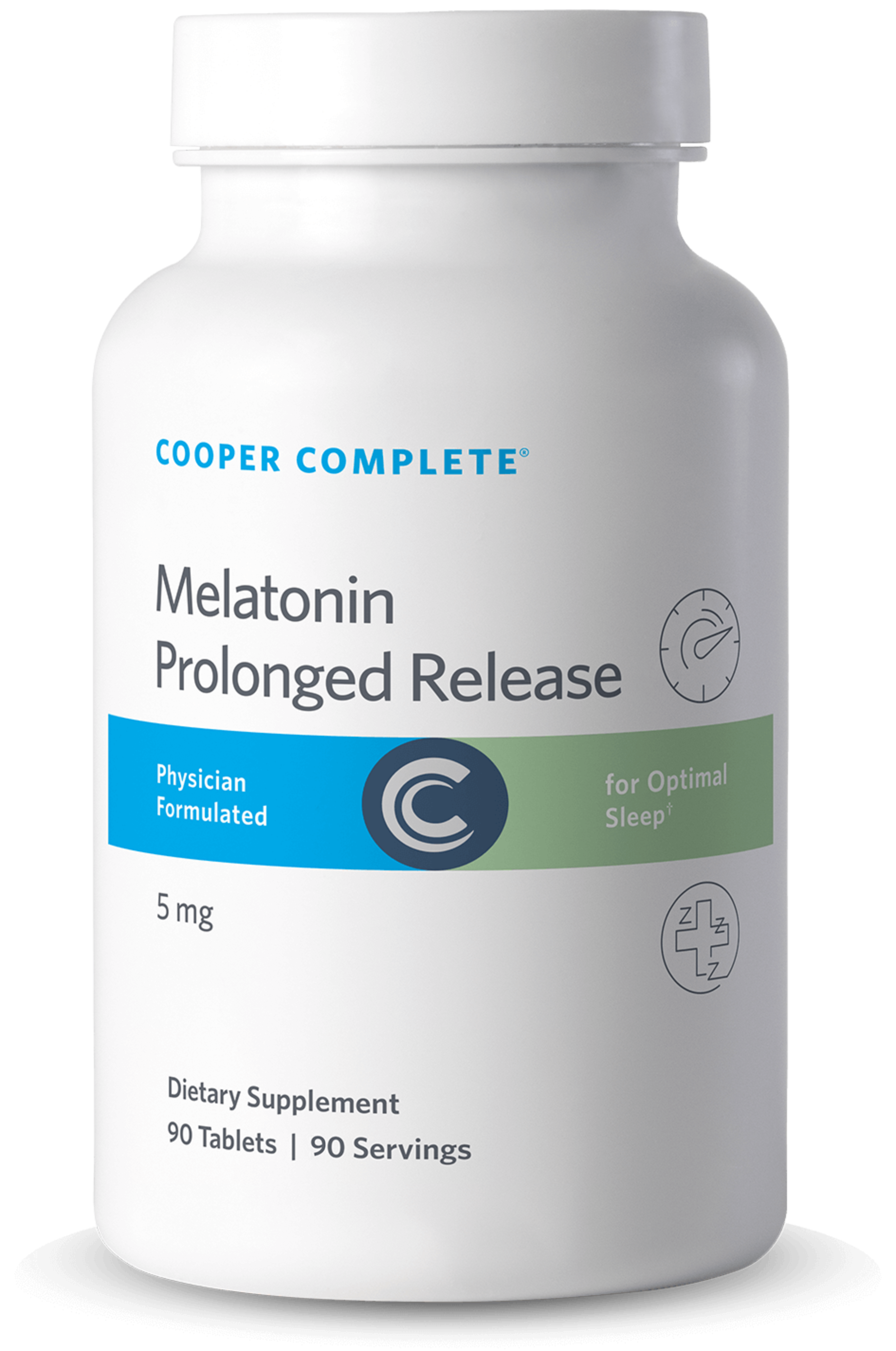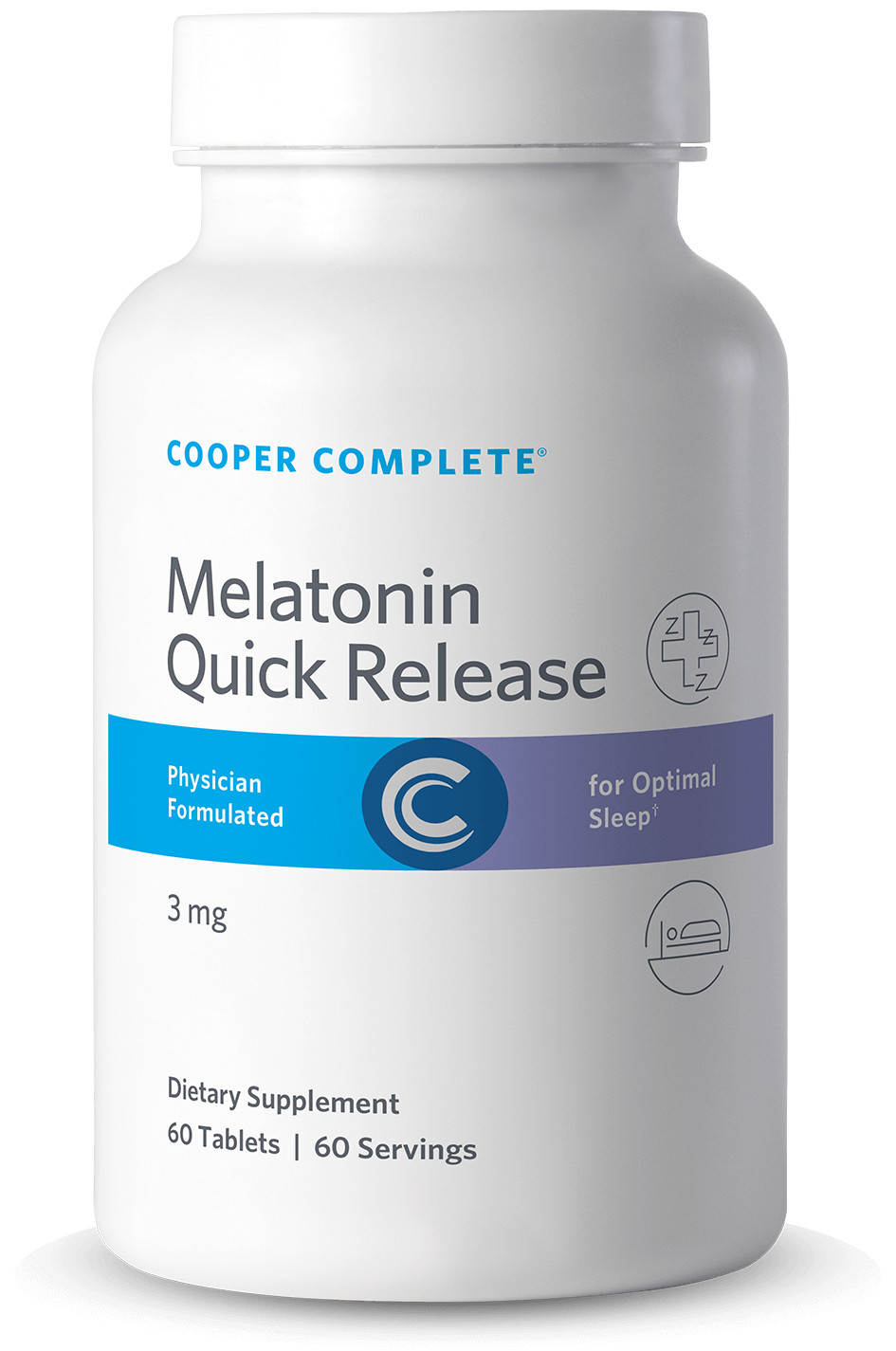Sleep Hygiene: Habits for Better Zzzs

According to the National Sleep Foundation, about 30 percent of adults complain of sleep disruption or trouble falling asleep or staying asleep. For some, this may be a short-term problem related to an acute stressor but for others, poor sleep quality may be the rule rather than the exception. The good news is there may be some simple changes you can make in your nighttime routine to get a better night’s sleep. These healthy sleep habits (sometimes referred to as “sleep hygiene”) can help you get a restorative night’s rest.

5 mg Melatonin Prolonged Release Supplement
Prolonged Release Melatonin is a formula with a two-phased delivery system that releases melatonin quickly and then steadily over six hours. Due to supply chain constraints, this product has transitioned to a 5 mg supplement and 90 tablets per bottle.
$26.97 Add to cartMaintain a sleep schedule
Establishing a consistent sleep schedule is essential and begins with going to bed and getting up at the same time every day, including on weekends. It also requires getting the appropriate amount of sleep every night.
The National Sleep Foundation recommends:
• Adults aged 18-64: 7-9 hours per night
• Adults aged 65+: 7-8 hours per night
• Children grade school: 9-12 hours per night
• Children toddlers: 11-14 hours per night
Creating an environment for good sleep
Create a dark, cool, and quiet setting in your bedroom that is conducive to quality sleep. Exposure to sunlight can affect sleep because it impacts our circadian rhythm or inner body clock. Sunlight is detected by specialized cells in our eyes which transmit those light signals to the brain. This then causes a series of chemical events to occur throughout the body, changing our physiology and behavior. For example, as the sun goes down in the evening, the sleep hormone melatonin begins to increase and our body temperature falls—both of which make us more receptive to sleep. In turn, exposure to bright sunlight peeking through the window in the morning has the opposite effect, causing a number of chemical reactions which help us feel alert. The impact of light on subsequent sleep onset, sleep duration, and sleep quality is controlled not only by the duration of light exposure but also by its intensity and spectral composition.
At night, exposure to light can throw the body’s biological clock off track. This includes the blue light emitted by cell phones, computers, tablets, and televisions as well as some LED lights. Exposure of the specialized cells in the eyes to blue light delays the release of melatonin so that it takes longer to fall asleep, robbing you of deep sleep. Many experts recommend avoiding looking at bright screens for at least an hour or two before bedtime.
I try to maintain a regular sleep schedule even though I may have a crazy daytime schedule. I sit in bed for about 30 minutes before I go to sleep, working on various puzzles from The New York Times or reading paperbound books (as opposed to reading eBooks). This helps quiet my brain. I also enjoy a cup of caffeine-free herbal tea before I retire.
How food affects sleep
I strongly recommend avoiding cigarettes, caffeine, heavy meals, and alcohol in the evening. While alcohol intake before bed may make you feel more relaxed so you fall asleep more quickly, it can also be associated with disrupted sleep and reduced sleep quality later in the night. A heavy meal before bedtime can also precipitate heartburn, which can definitely interfere with a good night’s sleep.
Tryptophan is an amino acid found in protein and is thought to promote sleep by increasing serotonin. Foods high in tryptophan that can actually boost serotonin levels include:
• Low-fat dairy products
• Nuts and seeds
• Bananas
• Chicken
• Turkey
• Fish
On the other hand, foods high in saturated fats and sugar, such as snack foods, cakes, cookies, candy, and chips, can reduce serotonin levels.
Naps: helpful or hurtful?
According to the National Sleep Foundation, napping does not adversely impact a good night’s sleep as long as it is kept to 20-30 minutes and limited to the early afternoon, from 1 to 3 p.m. This is when most people’s natural circadian rhythm dips a bit, resulting in a natural energy drop.
Keep in mind, if you snooze for longer than 30 minutes, you’ll transition from the light sleep stage to the deep sleep stage, causing you to potentially wake up feeling more tired than before your nap.
Sleep better with regular exercise
Regular exercise has been shown to improve sleep quality. As detailed in the 2018 Physical Activity Guidelines Advisory Committee Scientific Report, strong evidence demonstrates moderate to vigorous physical activity improves the quality of sleep by reducing the amount of time it takes to fall asleep and improving the ease of rising in the morning. It also can increase the time spent in deep sleep and reduce daytime sleepiness.
According to the National Sleep Foundation, it is better to exercise in the morning or afternoon to enjoy a longer and deeper night’s sleep. That being said, in a 2019 review published in Sports Medicine, researchers examined the results of 23 studies—looking at sleep onset and sleep quality after exercising in the evening. The study found that low-intensity exercise in the evening did not interfere with falling asleep or getting a restful night’s sleep. However, high-intensity exercise less than one hour before bedtime did increase the time it took to fall asleep, resulting in poorer sleep quality.

3 mg Melatonin Quick Release Supplement
Quick Release Melatonin promotes restful sleep patterns and supports falling asleep faster.† Melatonin supports normal sleep/wake cycles, healthy immune function and antioxidant activity.†
$17.98 Add to cartSupplementing your Zzzs
There is a substantial interest in the use of herbal medicines and supplements for improving sleep. The most commonly used plant extracts for insomnia are valerian, chamomile, and lavender; however, clinical studies demonstrating their effectiveness are sparse.
Clinical studies in humans indicate low levels of vitamin D are correlated with poor quality and short sleep duration. Vitamin D receptors and the enzymes that control its activation and degradation are expressed in several areas of the brain involved in sleep regulation. Vitamin D is also involved in the pathways of production of melatonin, which is needed for the regulation of human circadian rhythms and sleep. As is the case with plant extracts, clinical studies demonstrating the effectiveness of vitamin D supplementation on improving sleep are lacking.
Melatonin is a hormone made by the pineal gland in the brain from the amino acid tryptophan. The production of melatonin at night is tenfold higher than daytime concentrations. Melatonin sends signals to the brain and the rest of the body that help both initiate and maintain sleep. Prolonged screen time before bed can suppress the normal increase in melatonin at night, causing difficulty in falling asleep. Nighttime melatonin concentrations also decrease as we age.
The use of melatonin supplements may help the body mimic the natural effects of melatonin secretion by promoting the onset of sleep and the phase shifting of circadian rhythms. While the clinical trial evidence addressing the effectiveness of melatonin for the treatment of insomnia is of limited quality, the results suggest melatonin has modest, favorable effects on sleep.
Wake-up call
Chronic sleep deprivation can cause fatigue, forgetfulness, inability to concentrate, and difficulty learning new concepts. Furthermore, inadequate sleep is associated with the development of weight gain and chronic conditions such as diabetes, high blood pressure, and heart disease. While practicing good sleep hygiene may take some discipline, a good night’s sleep is well worth the effort.
Article provided by Nina B. Radford, MD, Cooper Clinic Cardiologist and Director of Clinical Research.
